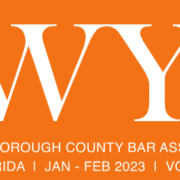Research: Collaborative Divorce By The Numbers (2010)
A few years ago, the International Academy of Collaborative Professionals released the results of a survey of 933 collaborative divorce and family law cases. Collaborative divorce is a process by which parties, instead of going to court to litigate, agree to a private framework that lends itself to developing more creative options for financial, child custody, and other family issues. In Florida, oftentimes a neutral facilitator/communication coach and a neutral financial professional are engaged to facilitate and lend their expertise to the process.

The survey was conducted from October 2006 through July 2010, and these results were compiled in the Spring 2012 edition of The Collaborative Review: The Journal of the International Academy of Collaborative Professionals (“IACP Research Regarding Collaborative Practice (Basic Findings)” by Linda Wray, J.D.):
- 58% of husbands and 59% of wives were between 40 and 54 years old;
- Over three-quarters of all clients had a 4-year college education or higher;
- In the majority of cases, the clients’ combined assets were valued at $200,000.00 or more;
- The majority of collaborative cases involved children;
- Almost 60% of cases were completed in eight months or less;
- 86% of cases settled with an agreement on all issues, while 2% of cases were resolved by reconciliation of the clients;
- The average number of face-to-face meetings between both clients and one or more professional was 2, with the average meeting lasting about 2 and a half hours;
- The average total cost for all collaborative professionals was $24,185.
Keep in mind that, of the 933 collaborative cases reported through 2010, only 7 were from Florida. Further, though the most utilized model of collaborative practice in Florida involves 2 attorneys, a neutral mental health professional, and a neutral financial professional, in other jurisdictions the most common model of collaborative divorce involves two attorneys, two mental health professionals (one for each spouse), a neutral financial professional, and a neutral child specialist. Accordingly, this research may not accurately reflect how collaborative divorce is practiced in the Sunshine State.
Fortunately, a new and updated study should be coming out later this year or sometime next year from the IACP which had much higher participation from Florida. Further, the new study will directly compare the experience of clients going through collaborative divorce to the experience of parties who have gone through litigated divorce, mediation and other dispute resolution methods, and self-represented parties.
If you have questions regarding collaborative divorce and you wish to speak with a trained Collaborative Attorney, contact Family Diplomacy at (813) 443-0615 or by filling out our consultation form.
Attorney Adam B. Cordover is president of Next Generation Divorce, Florida’s largest interdisciplinary collaborative divorce group. Further, Adam is co-chair of the Research Committee of the Collaborative Family Law Council of Florida and a member of the Research Committee of the International Academy of Collaborative Professionals.





Leave a Reply
Want to join the discussion?Feel free to contribute!